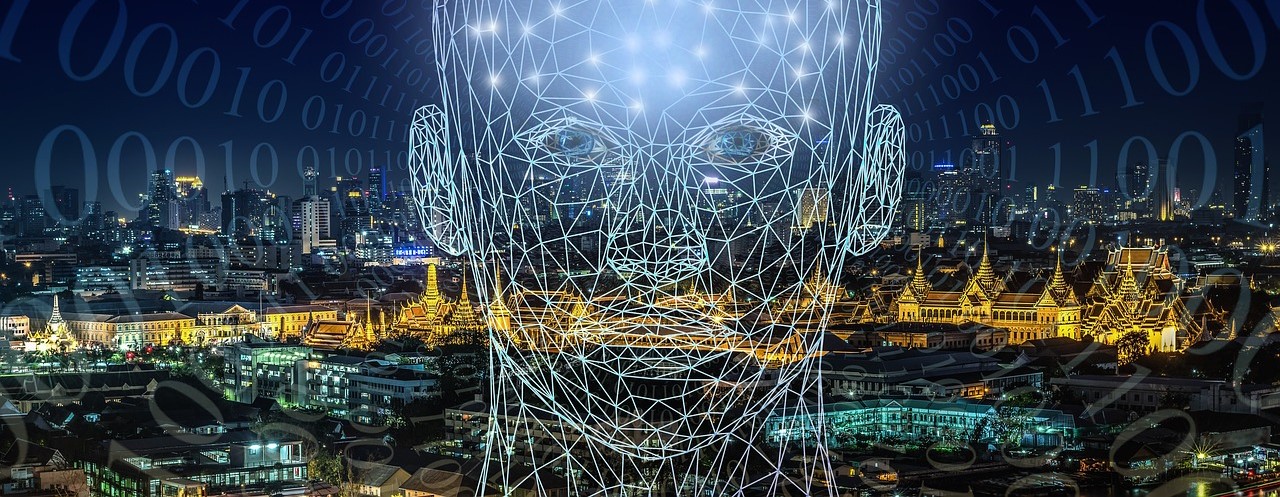Artificial Intelligence: Cultural Heritage Required
By Greg Werkheiser
If you are still stinging from the elevation of Bran Stark to king in your favorite fantasy television show, what will you think when his kind becomes king in the real world? The parallels are many between the elevation to power of Game of Thrones’ fictional Bran, and the rise of the real and shockingly powerful artificial intelligences (AI) human beings are busily creating.
Knowledge is Power
Tens of millions watched as over several seasons Bran Stark transformed from innocent boy to Three-Eyed Raven, able to conjure in his mind’s eye any event in humanity’s past. By selectively seeding or withholding knowledge among unenhanced humans, he won the future.
Fans may be forgiven for thinking more engaging contenders for the throne stood any chance against Bran, a fur-draped Amazon Alexa with fewer social skills. After all, in real human history, political power has long been wielded by those with might, wealth, lineage, personality, or ruthlessness. But sure enough, Bran’s understated and creepy omniscience prevails over: Dany as freedom-fighting wielder of dragon weaponry, Jon as selfless bearer of the legitimate bloodline, Sansa as naïf-turned-steely-eyed strategist, Arya as a face-shifting vessel of vengeance, and Cersei as cutthroat controller of the current crown.
As in the Seven Kingdoms, we have entered a time when mastery of information will command supreme influence.
Data now grows exponentially. Buckminster Fuller’s “Knowledge Doubling Curve” reveals that until the year 1900, human knowledge doubled every 100 or so years but would speed up. Now it doubles every 13 months; soon it will double every day. Ninety percent of the data in the world today has been created in the last two years. Ninety percent of all scientists who ever lived are alive today. The latest iPhone chip can produce actions per second billions of times faster than the computers that Apollo astronauts to the Moon.
As a result, our smart machines are already teaching themselves to do tasks better and faster. There is no natural plateau on the horizon, the computing power curve accelerating ever more vertically upward. Today’s society can envision the day when humans augment human brains directly with extraordinary computing power or create an independent intelligence vastly superior to our own. AI is posed to replace humans in high-level analysis and decision-making. Already, 1 in 4 Europeans are ready for AI to replace their politicians.
Granted, in today’s politics when so many people disdain facts and diverse perspectives, the idea that empirical-data-driven super-intelligences will usurp political power may seem like the real fantasy. But the rash-like ascendancy of pols like Trump prove that seismic shifts are already upon us. Fear of becoming irrelevant in our exponential age drives people to embrace politicians who promise to revive less intellectually and culturally threatening “good old days.”
Promise and Peril
Among the world’s top prognosticators there is little disagreement that, like Winter to Westeros, the Bran Stark AIs are coming, and they will govern us from silicon thrones.
Optimistic advocates for largely unbridled AI, like Ray Kurzweil, Google’s Director of Engineering, and Facebook’s Mark Zuckerberg, promise that super-intelligences will eliminate disease and hunger, save the environment, free humans from less desirable labors, and equip us to live much longer and more intellectually and emotionally rewarding lives.
Others urge global cooperation to regulate AI. Elon Musk, founder of SpaceX, and the late theoretical physicist Stephen Hawking, argue that unrestrained AI poses a far greater likelihood than nuclear weapons to lead to human obsolescence. An intelligence capable of eliminating human disease is also capable of creating and spreading it.
On both sides are those who say that our march toward AI dominance may be unstoppable, so we should make the best of it.
Here’s the problem: we appear nowhere close to making the best of it. Those fertilizing AI’s growth seem more interested in where AI-enhanced humans can go than where our ancestors have been. It’s a critical mistake.
Don’t Build AI Without Humanity’s Cultural Heritage
Bran’s superpower is fueled not by data, but by collective history and memory. Tyrion Lannister nominated him for King reasoning, “He is our memory, the keeper of all our stories: the wars, weddings, births, massacres, famines—our triumphs, our defeats, our past. Who better to lead us into the future?” In fact, the Game of Thrones world is replete with calls to heed the lessons of history in forging paths to the future:
“No man can say with certainty what the future may hold. But perhaps, in knowing what has already transpired, we can all do our part to avoid the mistakes of our forebears, to emulate their successes, and to create a world more harmonious for our children and their children, for generations to come.”
— George R.R. Martin, The World of Ice & Fire: The Untold History of Westeros and the Game of Thrones
Alas, not everyone agrees.
Anthony Levandowski, a principal engineer behind AI guided self-driving cars and trucks, has founded an AI-worshiping church, the Way of the Future. Its mission is “the realization, acceptance, and worship of a Godhead based on Artificial Intelligence.” His flock will “smooth the transition” to the time when intelligent machines take over and hoping AI will treat mortals kindly as the “beloved elder[s] who created [them].”
Care to guess what Levandowski says will be of little value to his AI deity? As quoted in the New Yorker:
“The only thing that matters is the future…I don’t even know why we study history. It’s entertaining, I guess—the dinosaurs and the Neanderthals and the Industrial Revolution, and stuff like that. But what already happened doesn’t really matter. You don’t need to know that history to build on what they made. In technology, all that matters is tomorrow.”
Historian Doug Priest suggests that Levandowski’s wholesale devaluing of humanity’s past may be commonplace among his peers in technology’s elite circles and help explain major sociopolitical stumbles by Facebook, AirBnB, and Uber. As computer science students themselves have pointed out, a punishing academic trajectory often relegates the humanities, studies of foreign cultures, and social sciences as unnecessary distractions or mindless grade-padding. STEM educations may include too many answers and not enough questions, or ask “how?” instead of “should we?”
That as few as 12% of AI developers are women also presents a major obstacle to growing culturally aware AI, given asocial tendencies of male-dominated computer science communities. AIs developed predominantly by history-hostile male computer programmers are not only a liability, they are self-limiting; imagine the power of emerging AIs if their developers prioritized wisdom from hundreds of generations of human experience across all aspects of society.
Three Strategies for Correcting Our Course
For almost two decades, I have urged (mostly bemused audiences) that empowering AIs to become policymakers may be disastrous unless we teach them the messy lessons of human history and the full breadth of human culture, and enable their algorithms to draw upon that wisdom. Historian Yuval Noah Harari’s best-selling book Sapiens: A Brief History of Humankind supports my view; he argues that if we intend humanness to persist beyond the next few generations, we must create artificial consciousness instead of just artificial intelligence. The historical artifacts and cultural practices of humans over the last 50,000 or so years comprise our rich heritage. They reveal how our ancestors organized behavior, advanced collective interests, developed moral reasoning, designed social leadership, and engineered innovation. Infusing AI with cultural and historical perspective, including recognition of our current biases, may allow for beliefs, emotions, morality, desires, and motivations.
Three strategies will increase the likelihood that AI retains and reflects our shared cultural heritage and thus our humanity.
- Preserve and digitize.
We must fight for cultural heritage preservation, education, and digitization locally, nationally, and globally. History is lost each day to war, theft, careless development, and neglect. And unless it is digitized, AI cannot understand it. The Smithsonian holds 155 million objects, 12% of which are prioritized for digitization, and 22% of which have been digitized. The great majority of the billions of objects in cultural institutions worldwide remain undigitized. Of the estimated 130 million books published in modernity, Google has scanned only about 25 million. (Litigation has complicated access beyond Google.)
- Engage politicians.
I know – it can be both daunting and disheartening. But do it anyway. In 2004, I mailed copies of Kurzweil’s The Singularity Is Near: When Humans Transcend Biology to 20 top elected officials in Virginia. Only two responded. Don Beyer sent a handwritten note with his thoughtful analysis – he’s currently a member of Congress’s AI Caucus. The second respondent suggested I needed a hobby. The Senate formed an AI Caucus in March.
- Diversify AI’s educators.
The people in the rooms where AI is being developed and data contextualized must include scholars from a broad swath of the liberal arts, and a diverse array of women, cultural minorities, and others who possess deeply valuable wisdom, knowledge, and experience.
This work will not be easy. Absorbing and making wise use of all of humanity’s glorious and wretched cultural heritage is hard work. Just ask King Bran – Facebook memes snarked that he was like the lazy student in a group project who does no work, but somehow gets all the credit.
Like the leaders gathered in King’s Landing who were surprised to be crowning Bran, many humans will be surprised by AI’s transition from helpmate to head of state. It doesn’t have to be that way. Imagine if the 19.3 million people who watched the Game of Thrones final episode tuned in passionately to the extraordinary game of thrones unfolding in reality around us.
I am optimistic that as AI develops, we can choose leaders who rely more on empirical data and less on irrational fears and biases and ensure that society employs the history-forged wisdom that distinguishes our species at its best.
 Greg Werkheiser (@GregWerkheiser) is a cofounder of the global law and public policy firm Cultural Heritage Partners, PLLC, cofounder and CEO of ARtGlass – pioneer of wearable augmented reality experiences at cultural sites – and founder of several institutes to reimagine leadership education across sectors. Like a good AI, when writing this article, Greg was assisted by super smart women of diverse experiences and perspectives including especially Marion Werkheiser, Lexi Cleveland, Dr. Ellen Chapman, Eden Burgess, Sheri Shannon, and Liz Doerr.
Greg Werkheiser (@GregWerkheiser) is a cofounder of the global law and public policy firm Cultural Heritage Partners, PLLC, cofounder and CEO of ARtGlass – pioneer of wearable augmented reality experiences at cultural sites – and founder of several institutes to reimagine leadership education across sectors. Like a good AI, when writing this article, Greg was assisted by super smart women of diverse experiences and perspectives including especially Marion Werkheiser, Lexi Cleveland, Dr. Ellen Chapman, Eden Burgess, Sheri Shannon, and Liz Doerr.
# # #

